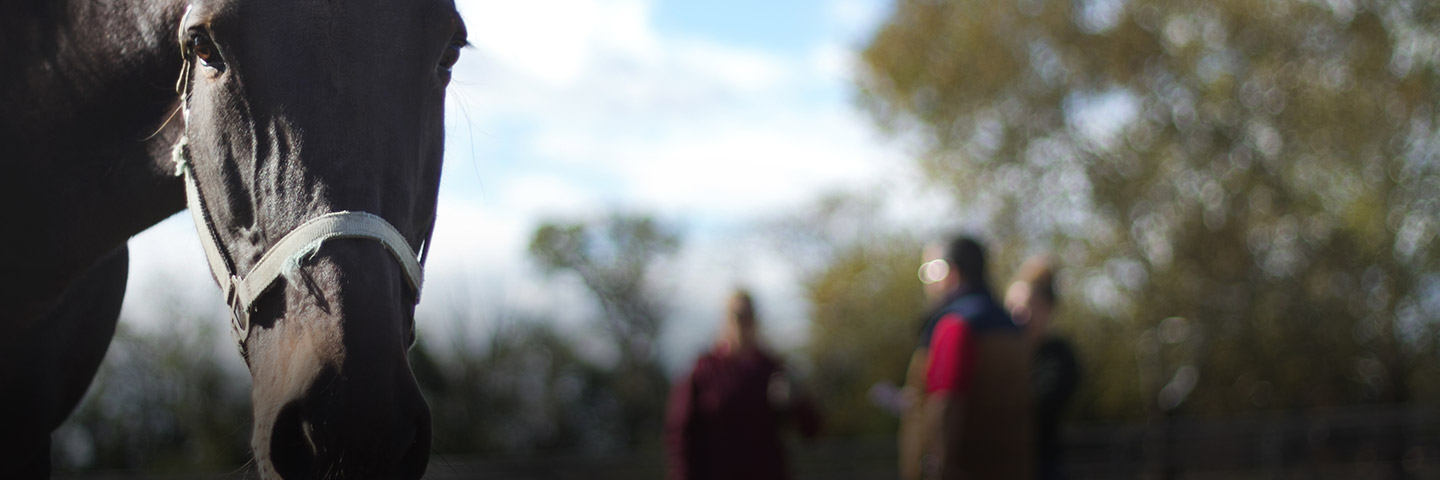Hay Everyone!
The holiday season is right around the corner. For all my friends here on campus, that means finals are also fast approaching. Before everyone can take a much-deserved break, they have to put in a bit more studying and make it over that final jump (excuse me, final exam). Now, we all know the dreaded season of final exams brings plenty of stress with it including those dreaded all-nighters. Healthy eating habits can also quickly disintegrate, and stress levels can seem to spiral out of control. Before you panic, however, take a moment to rein in those feelings of stress and take a look at some ways you can minimize stress. And the coolest part? You’ll also learn about keeping your horse healthy!
The dreaded all-nighter can seem like the best (and only) way of conquering that last final exam. Sleep, however, is an important aspect of keeping yourself happy and functioning at full capacity. According to the Centers for Disease Control and Prevention (CDC), getting enough sleep each day can help you stay focused, concentrate, and improve your academic performance. Additionally, not getting enough sleep can increase your risk of having health problems. Sounds to me like you should be sleeping instead of pulling an all-nighter! It’s great that adequate sleep has all of these wonderful benefits, but how much is enough? Well, the CDC recommends individuals between six and twelve years of age should be getting nine to twelve hours of sleep per day while those between thirteen and eighteen years of age should be getting eight to ten hours of sleep per day. If you’re an adult, then you should be getting more than seven hours of sleep per day.
Sleep is actually more complicated than you might think. Scientists agree there are several stages of sleep, four to be exact. Broadly speaking, however, sleep can be divided into rapid eye movement (REM) and non-REM sleep. Stages 1 through 3 occur during non-REM sleep. Stage 1 represents the shift from a waking to sleeping state. The body slows down and your brain wave activity mirrors these changes. Stage 2 is where sleep continues to deepen with bodily functions like breathing slowing down even further. Brain wave activity once again mirrors these bodily changes, but there may be brief bursts of activity. Stage 3 is known as deep sleep and is needed for you to wake feeling refreshed. Your heartbeat and breathing will be slowest during these periods and your muscles will be relaxed. It is often hard to wake someone if he or she is in this deep sleep. Brain wave activity will also be at its lowest during this period. REM sleep typically occurs about 90 minutes after you fall asleep. This type of sleep is named for the rapid eye movements that occur. Your heartrate and breathing will increase such that they are similar to what is seen during waking hours. Brain wave activity also more closely resembles waking patterns during this period of sleep. REM sleep is also when the majority of your dreams take place, although dreaming can also occur during other periods of sleep.
I learned all of this cool stuff about sleeping in humans and I wanted to see how it stacked up against sleep in horses. Now I was worried. Am I getting enough sleep? It turns out researchers have been asking these same questions. Adult horses generally sleep between three and five hours a day. Turns out we don’t need quite as much sleep as our human owners do! In other respects, horses and humans are similar. Horses also have different stages of sleep including non-REM and REM sleep. Horses can achieve non-REM sleep standing up although they will sometimes lie down. REM sleep on the other hand, can only be achieved when the horse is lying down. This includes sternal recumbency (lying upright) or lateral recumbency (lying on its side). It is thought horses require at least thirty minutes of REM sleep per day.
Interestingly, a horse’s requirement to be lying down while in REM sleep has led to some fascinating observations. Horses who are sleep deprived will often fall down while sleeping and this collapse is often associated with the horse entering REM sleep. You can check out the video above produced by Fuchs and colleagues from their study on sleep deprivation in horses demonstrating this phenomenon. I’m certainly going to make sure I’m getting my full three to five hours of sleep. I don’t want to take a nosedive as I’m snoozing.
How can you make sure your horse is getting enough sleep, especially enough REM sleep? First and foremost, it’s important to establish a consistent routine so your horse knows what to expect from day to day. You want to make sure your horse is comfortable enough with its surroundings to lay down every day. Changes in environment, such as moving your horse, or an injury can prevent your horse from laying down or make it uncomfortable enough that it chooses not to lie down. You’ll want to be especially vigilant as your horse ages. Arthritis and other age-related changes may make your horse hesitant to lay down and thus, compromise its ability to catch up on those much needed ZZZ. If your horse begins collapsing while sleeping or sleeping more than normal, talk to your veterinarian. You’ll want to address any underlying health issues and then create an environment where your horse feels comfortable and safe laying down.
I’m off to take a quick cat nap. All this talk about sleep has made my eyelids droop. Make sure you stay healthy as you tackle this round of final exams. Remember, that means building in time to catch plenty of shut-eye every day!
Until next time!
Your Friend,

Lord Nelson

